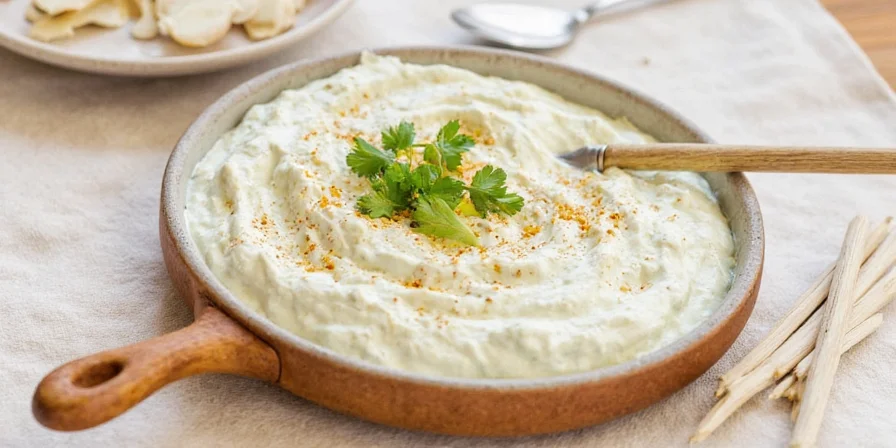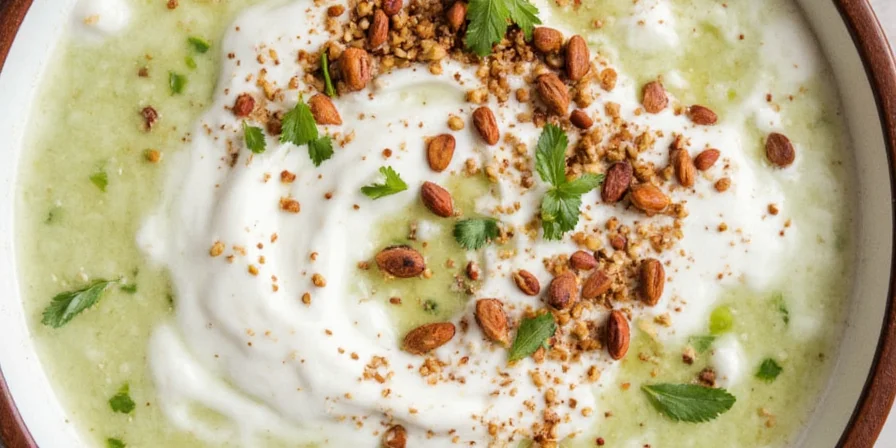The Magic Behind Tzatziki: Spice Storage and Usage Hacks You Never Knew You Needed

Picture this: You're in a bustling Greek taverna, the sun is shining, and you're savoring a plate of freshly grilled souvlaki, dipped into a cool, creamy tzatziki sauce that makes your taste buds do a happy dance. Sounds perfect, right? Now, imagine replicating that exact flavor at home—without the Greek sun. It's not just about the yogurt or the cucumber. Oh no, my friends. The real magic lies in the spices. And the way you store and use them is just as important as the recipe itself.
Understanding Tzatziki Sauce: A Flavorful Breakdown
Tzatziki is a staple in Mediterranean cuisine, known for its refreshing, tangy, and slightly garlicky taste. While it's typically made from Greek yogurt, cucumber, olive oil, and garlic, the spices used can vary widely depending on the region and personal preference.
However, one spice that is commonly found in tzatziki recipes and plays a subtle but significant role is black pepper. Yes, you read that right—black pepper. It may not be the star of the show, but it adds a depth of flavor that elevates the entire dish.
The Role of Black Pepper in Tzatziki
- Enhances Flavor: Black pepper helps to balance the creaminess of the yogurt with a slight heat and sharpness.
- Boosts Aroma: It adds a subtle smokiness that complements the freshness of cucumber and the richness of olive oil.
- Acts as a Preservative: While not a traditional preservative, black pepper contains compounds that can slightly extend the shelf life of tzatziki by inhibiting bacterial growth.
Spice Storage 101: Keeping Your Black Pepper Fresh and Flavorful
Now that we've established the importance of black pepper in tzatziki, let's talk about how to store it properly. After all, even the best spice can lose its potency if not stored correctly.
Storage Tips for Black Pepper
| Storage Method | Pros | Cons |
|---|---|---|
| Whole peppercorns in an airtight container | Preserves flavor longer, easy to grind as needed | Requires a grinder |
| Powdered black pepper in a sealed jar | Ready to use, no need for grinding | Loss of potency over time |
| Stored in the fridge | Slows oxidation, preserves freshness | Less convenient, may not be necessary for short-term use |
As a rule of thumb, whole peppercorns last longer than ground pepper, so if you're a frequent user, it's worth investing in a good pepper grinder. If you're a casual cook, pre-ground pepper in a sealed jar will do just fine, as long as you use it within a few months.
And here's a tip: store your pepper away from heat and light. That means no near the stove or in a clear jar on the counter. A cool, dark place like a pantry or cabinet is ideal. The longer you store black pepper, the more it loses its potency, so it's best to buy in smaller quantities and use it regularly.
How to Use Black Pepper in Tzatziki: A Culinary Whisper
Now that you've got your black pepper stored perfectly, let's talk about how to use it in tzatziki. Remember, less is more when it comes to this spice. A little goes a long way.
Usage Tips for Black Pepper in Tzatziki
- Use Freshly Ground Pepper: Freshly ground black pepper has a more intense flavor and aroma than pre-ground. Always grind your pepper just before adding it to the tzatziki.
- Start with a Pinch: A pinch of black pepper is enough to enhance the flavor of tzatziki. You can always add more, but you can't take it away.
- Pair with Garlic: Black pepper and garlic are a match made in culinary heaven. They complement each other perfectly and create a bold, aromatic base for your tzatziki.
Another tip: use a mortar and pestle to crush your black pepper before adding it to the tzatziki. This method releases more of the essential oils, giving your tzatziki a more intense and complex flavor.
More Than Just Tzatziki: Black Pepper's Versatile Sidekick
Black pepper is not limited to tzatziki. It's one of the most versatile spices in the kitchen. But its role in tzatziki is unique. It's not just for flavor—it's also for texture and balance.
Black Pepper in Other Dishes
- Stews and Soups: Adds depth and warmth.
- Meat Dishes: Enhances the richness of beef, pork, and game.
- Vegetable Dishes: Helps bring out the natural sweetness of vegetables.
- Salads: Adds a subtle heat that complements the crispness of greens.
But when it comes to tzatziki, black pepper is a gentle hand that guides the flavor without overpowering it. It's the secret ingredient that makes your tzatziki stand out from the rest.
Common Mistakes to Avoid When Using Black Pepper in Tzatziki
Even the most experienced cooks can fall into the trap of overusing black pepper. Here are some common mistakes to avoid:
- Using Too Much: A little goes a long way. Too much black pepper can make your tzatziki bitter and overpower the other ingredients.
- Using Old Pepper: Old pepper has lost most of its flavor. Always use fresh pepper for the best results.
- Adding It Too Early: Black pepper should be added at the end of the preparation process to preserve its flavor. Adding it too early can cause it to lose potency.
Remember, the key to a great tzatziki is balance. Too much of anything—whether it's pepper, garlic, or even olive oil—can throw the entire dish off. So keep it simple, keep it fresh, and keep it balanced.
Final Thoughts: Elevate Your Tzatziki Game with Black Pepper
So there you have it—the secret to a perfect tzatziki sauce. It's not just about the yogurt or the cucumber. It's about the spices, and more specifically, the black pepper. From storage to usage, every step matters.
Whether you're a professional chef or a home cook, understanding how to use and store black pepper can take your tzatziki from good to extraordinary. So next time you're making tzatziki, don't forget to add that pinch of black pepper. Your taste buds—and your guests—will thank you.
Now go forth, spice enthusiasts. The world of flavor is waiting for you.











 浙公网安备
33010002000092号
浙公网安备
33010002000092号 浙B2-20120091-4
浙B2-20120091-4